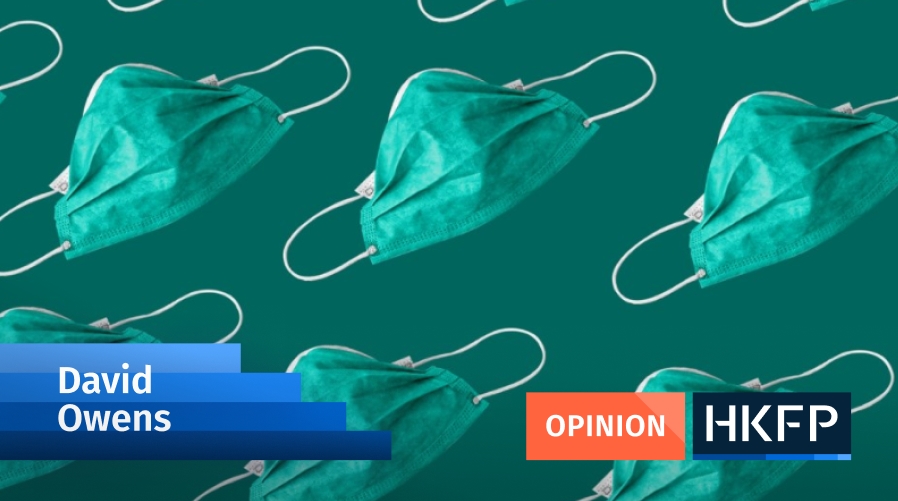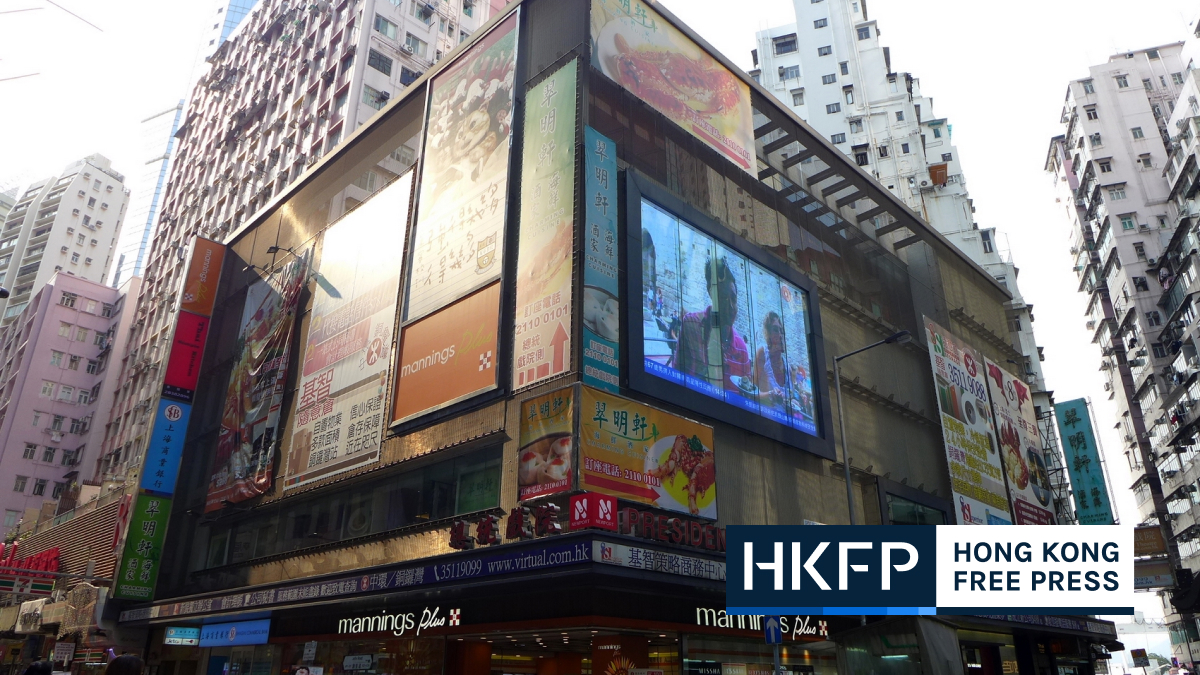As her friend put a compact disc containing anti-epidemic information into the player, Lau Yuk-ping pricked up her ears to make sure she would not miss anything. There were multiple tracks detailing ways to maintain personal hygiene during the coronavirus pandemic, which has infected more than 2,500 people in Hong Kong and led to 18 deaths.
“Wet your hands and don’t turn off the tap. Add soap and make sure you rub your palms, the back of your hands, the gaps between your fingers, the back of your fingers, your thumbs, fingertips, and lastly your wrists…,” the recording says.

The 47-year-old tried her best to follow the elaborate series of instructions but could not retain everything. She would have to replay the tracks again, hoping to digest and memorise all the information the next time around.
While the advice was comprehensive, Lau told HKFP she often worried that she had not done enough to guard against the deadly virus. She said her extremely blurred and narrow vision – resulting from glaucoma and a squint – had deepened her fears and anxieties during the Covid-19 outbreak, especially since the new wave of infections this month, with an alarming number of untraceable cases.
“I’ve become so nervous and worried recently, because the outbreak suddenly got worse, and there were a few confirmed cases near my home,” said Lau, who lives alone in Shek Kip Mei in Kowloon.

Lau said it had been challenging to get her hands on food and anti-epidemic supplies such as face masks and bleach. She had a few unpleasant encounters in stores when she went searching for supplies with a friend who is also visually impaired. Some shop assistants declined to help them or claimed the products were sold out, when other customers were still waiting in line.
“Maybe the shop assistant thought that even if he told us the supplies were sold out, we wouldn’t know, because we couldn’t see,” she said.
Some customers have yelled at Lau after she touched different products on supermarket shelves, accusing her of being inconsiderate as they feared they might contract the coronavirus by touching contaminated objects. But people are unaware that those with impaired vision rely on their sense of touch to recognise their surroundings, she said.

“Now most lift buttons or building password buttons are covered by a plastic sheet. It actually made it quite difficult for me to feel the Braille. I have gone to the wrong floor before because of this,” Lau said.
Jason Ho, vice-president of the Hong Kong Blind Union, said visually impaired people have faced tremendous challenges during the months-long outbreak. One of their greatest obstacles was accessing news and information related to the fast-changing epidemic, he added.
According to a report from the union released in April, only two out of ten news apps in Hong Kong met the seven accessibility criteria laid out in the Web Content Accessibility Guidelines 2.0.

RTHK News and the government’s news app performed the best, while TVB News met the least number of criteria, the report said.
Ho said visually impaired people like him often have difficulty navigating the apps because they do not know what different buttons do. They rely on a screen reader that reads the text aloud and cannot process images. Instead, the application would read out the codes behind the photos or graphics which “makes no sense” to users, he said.
These accessibility issues have resulted in a significant delay in disseminating information on the latest development of the epidemic. A member of the union told Ho he did not find out there was someone under quarantine in his building until the quarantine period was over, as he had difficulty reading the buildings list posted by the government.

“This is a great example to show that if the platform is not accessible, there is a risk,” Ho said.
The union representative shared his personal experience where he was late to find out where anti-epidemic supplies could be bought. He recalled the mask-buying frenzy in February, when shelves across Hong Kong were emptied as people scrambled to get face masks to protect themselves against the virus.
He said the way people shared information on social media about which stores still had stock was very “image-driven,” which made it difficult for people with visual impairment to understand.
“When people shared information about face mask buying, they usually used photos or screenshots, and we wouldn’t know [what they were talking about]. But this mode of communication or information transmission is commonly used by many Hongkongers,” he said.

The union had made a public appeal for face mask donations and was able to gather enough for distribution to around 1,300 people with visual impairment, with each getting about 50 masks.
Ho added that the government informed them a charitable organisation wanted to make a donation in May, but the union had not received any direct assistance from the authorities over the past months.
Ho urged app developers to consider the special needs of people with visual impairment when designing their platforms. He also called on the government to refer to other countries for examples of implementing legislation to ensure information accessibility.

“Hong Kong is an international city, and should implement the Convention on the Rights of Persons with Disabilities. We hope Hong Kong will follow the trend to enact laws to regulate information accessibility and ensure products are universally designed,” he said.
Support HKFP | Policies & Ethics | Error/typo? | Contact Us | Newsletter | Transparency & Annual Report | Apps
Help safeguard press freedom & keep HKFP free for all readers by supporting our team















